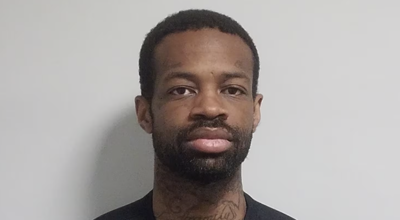Lynn Fitch sued states that made election changes. Perhaps she should look closer to home.
Published 5:34 am Monday, December 21, 2020
BY BOBBY HARRISON
MISSISSIPPI TODAY
Perhaps Mississippi Attorney General Lynn Fitch should sue Secretary of State Michael Watson.
After all, Watson essentially did what Fitch and 18 other Republican state attorneys general sued four states for doing: enacting changes to election procedure without garnering legislative approval.
That high-profile lawsuit, filed by Texas Attorney General Ken Paxton and joined by Fitch, sought to have about 20 million ballots invalidated in Georgia, Michigan, Pennsylvania and Wisconsin. Instead, the plaintiffs wanted those states’ Republican legislatures to select the winner. Presumably, they would have selected President Donald Trump instead of former Vice President Joe Biden, who won those four states on the way to capturing the presidency.
The lawsuit, of course, was rejected by the U.S. Supreme Court. The suit alleged that because state election officials (the executive branch) and the judiciary made those changes, they were invalid since state constitutions and the U.S. Constitution vest the legislative branch with the authority to make and change laws.
But even in Mississippi this year, election changes were made without legislative approval. Attorneys for the Lawyers Committee on Civil Rights and the Southern Poverty Law Center announced in October they were dropping a lawsuit filed against Mississippi because of voter safety issues related to the COVID-19 pandemic after Watson agreed to make changes to the procedure for processing absentee ballots received by mail.
Under the change, local election officials were required to provide notice to people voting by mail if their ballots were being rejected because of signature verification issues and allow voters “to cure” or correct the problem.
When asked how what he did was any different than what election officials did in those pivotal swing states, Watson argued it was much different because he was acting within his regulatory authority given to him by the Mississippi Legislature to establish guidelines to carry out the election.
Essentially, that is what election officials said they were doing in Georgia, Michigan, Pennsylvania and Wisconsin, based on their responses to the Paxton/Fitch lawsuit. And multiple court jurisdictions — conservative and liberal judges — have affirmed their position.
Election officials in those four swing states sued by the attorneys general said they were working to ensure voter safety and to expand opportunities for voters to correct any problems with their ballots, just as Watson maintained he was doing here in Mississippi.
Most states, and not just those four swing states, made changes to address safety concerns related to COVID-19. In Texas, home of Paxton, Republican Gov. Greg Abbott through emergency orders made several changes, including establishing secure drop boxes where people could drop off ballots instead of relying on the U.S. Postal Service. Perhaps if Biden had won Texas, Fitch would have filed a lawsuit against the Lone Star state.
Despite the multiple court rulings, some Mississippi officials including Watson, Fitch and Gov. Tate Reeves continue to question the validity of the election. They argue that Mississippi voters might have been harmed because officials in other states relaxed voting laws, thus making the ballots cast by Mississippians less meaningful.
On social media Reeves said, “a safe and fair election here in Mississippi — not upended by last minute schemes to radically alter voting methods. Election integrity is vital.”
Both Reeves and Watson spoke last week of officials in other states “flooding” their states with unsolicited mail-in ballots. In reality, that did not occur in any of those four swing states. In some of the states, voters were sent unsolicited applications for absentee ballots. That practice was challenged in court and approved as being within the framework of the law.
Other non-swing states like Republican-dominated Utah and Democratic-controlled Washington have been conducting mail-in voting for years and sending ballots to all registered voters.
Most states, though not Mississippi, have some version of no-excuse early voting both in person and by mail. In those states, safeguards, such as requiring signature verification and requiring a voter identification number on the ballot, help to ensure election security.
Besides arguing what Watson did was different than the election changes made in the four swing states, Fitch contends he did not make the changes in processing absentee ballots because of the lawsuit.
“The secretary of state used the regulatory authority the Legislature gave him… and the plaintiffs lost their legal basis for bringing a suit. It’s misleading to call that a settlement,” said Colby Jordan, a spokesperson at Fitch’s office. “It’s the legislative and regulatory process working the way they were intended.”
Yet the motion dismissing the lawsuit, signed by U.S. Judge Daniel Jordan, references “the agreement of the parties” as a reason for the dismissal. And when the plaintiffs said they were dropping the lawsuit because of the changes, Fitch and Watson did not dispute those reports, though they have been busy disputing election results.






